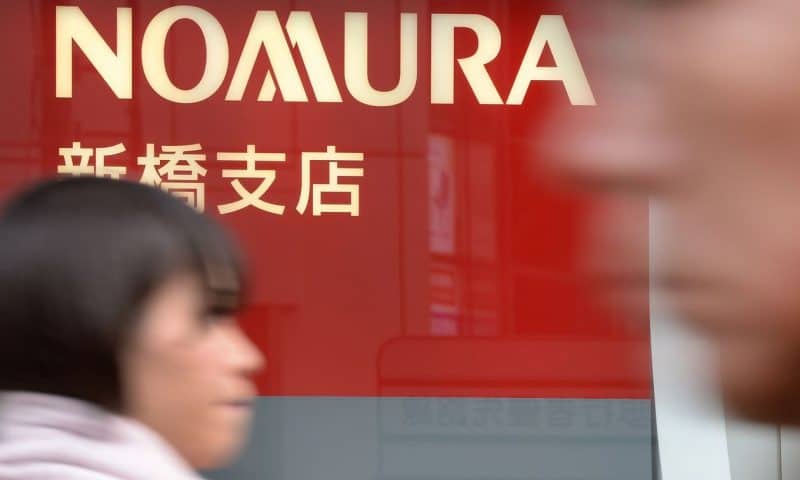Nomura shares keeps falling in Tokyo; stocks rise in Hong Kong and Shanghai
TOKYO — Asian shares were mixed in listless trading Tuesday after U.S. stocks finished mostly lower as cause for optimism, such as the Suez Canal reopening, mixed with caution about the vaccine rollout.
Japan’s benchmark Nikkei 225 NIK, +0.16% were flat in morning trading. Hong Kong’s Hang Seng HSI, +0.84% gained 1.1%, while the Shanghai Composite SHCOMP, +0.62% advanced 0.6% Australia’s S&P/ASX 200 XJO, -0.90% lost early gains to fall 0.6%. South Korea’s Kospi 180721, +1.12% added 1.1%, and stocks rose in Singapore STI, +0.48% but fell in Taiwan Y9999, +0.48% and Indonesia JAKIDX, -1.55%.
“Asia markets can be seen broadly treading water,” said Jingyi Pan, senior market strategist at IG in Singapore, adding that the markets were “awaiting fresh catalysts to assume a definitive direction.”
One cause for market optimism was the reopening of the Suez Canal, one of the world’s most vital waterways, after a stuck cargo ship was freed. At least 113 of over 420 vessels that had waited for the Ever Given to be freed were expected to cross the canal by Tuesday morning Egypt time. It’s expected to take at least another 10 days to fully clear the backlog on either end.
Nomura 8604, +1.87% stock continued to slide, slipping nearly 3% in the morning session in Tokyo trading.
On Monday, Nomura Holdings and Swiss bank Credit Suisse CS, -3.47% said they’re facing potentially significant losses because of their dealings with a major client, though the exact magnitude is still unclear. Nomura estimated the claim against its client could be about $2 billion.
Credit Suisse said that it “and a number of other banks” are exiting trades they made with a significant U.S.-based hedge fund, which defaulted on a “margin call” last week. A margin call happens when a broker tells a client to put up cash after it borrowed money to make trades. News reports identified the client as New York-based Archegos Capital Management.
Shares of Credit Suisse and Nomura each nose-dived Monday. U.S. banks got caught in the downdraft as investors question whether the soured trades will be isolated or the effect will spread widely.
Hopes for economic recovery have been growing as the vaccine rollout moves along in parts of Europe as well as the U.S., with reports the shots are proving effective in preventing serious illnesses. Developing economies were also getting the vaccine.
Japan was one exception, having among the slowest vaccine rollouts in Asia, with fewer than 1% of its population getting inoculated so far, all medical workers. Prospects for the general public getting the vaccine weren’t expected until the end of the year.
Worries are also growing about people letting go of their social distancing measures too early, as they get vaccinated, leading to another wave of infections.
U.S. stock indexes closed mostly lower Monday, pulling the S&P 500 slightly below the all-time high it set last week, while nudging the Dow Jones Industrial Average to another record high.
The S&P 500 slipped 0.1%, recovering most of a 0.8% slide earlier in the day. Banks had some of the sharpest losses, while technology stocks also fell broadly as China announced more tax breaks to bolster its own chip sector.
The S&P 500 SPX, -0.34% dropped 3.45 points to 3,971.09. The Dow DJIA, -0.18% rose 98.49 points, or 0.3%, to 33,171.37. The Nasdaq COMP, -0.71% lost 79.08 points, or 0.6%, to 13,059.65.
In energy trading, benchmark U.S. crude CLK21, -1.69% lost 13 cents to $61.43 a barrel. Brent crude BRNK21, -1.42%, the international standard, fell 21 cents to $64.77 a barrel.
In currency trading, the U.S. dollar USDJPY, 0.50% edged up to 109.94 Japanese yen from 109.64

